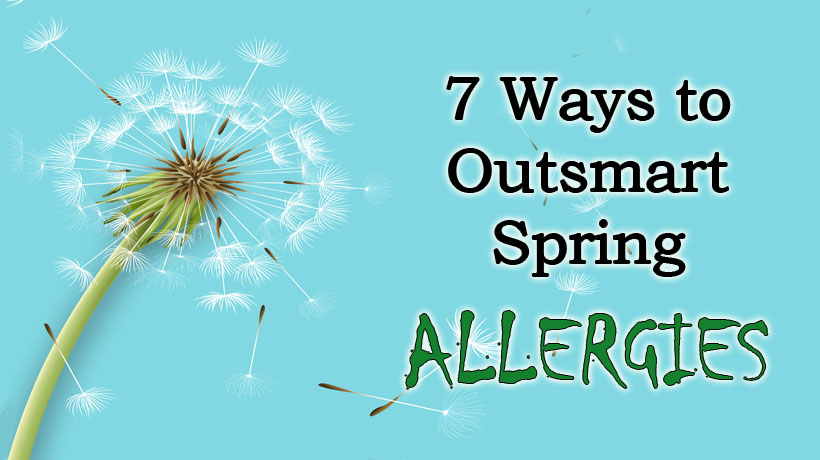As warm weather approaches, allergies come along with it. It is just constant sneezing and pulling out tissues for our runny nose and teary eyes. As beautiful as the weather may be, it’s hard to step foot outside when your allergies are in effect. What can we do about our allergies?
Causes
According to WebMD, the biggest spring allergy trigger is pollen. Trees, grasses, and weeds release tiny grains into the air to fertilize other plants, and our body gets caught in the crossfire. Once the pollen is in our system, our body releases antibodies to fight the allergens, which can mean runny nose and itchy eyes.
When pollen counts are high, the wind can pick up these sneeze-inducing grains and carry them through the air. Rainy days, on the other hand, wash away the allergens.
Find the problem
If your symptoms start around the same time each year and are not accompanied by fever or other signs of a cold or infection, it may be allergies, according to Summit Medical Group. See an allergist to help identify the allergen and optimize your treatment plan. A simple blood or skin test, which pricks a small dose of the allergen under the skin, can screen for dozens of common allergens.
Over-the-counter medications
Summit Medical Group states there are several types of over-the-counter medications that can help relieve symptoms, such as:
- Antihistamines – alleviate congestion and itchy and watery eyes
- Decongestants – relieve nasal congestion, mucus, and swelling
- Nasal sprays – shrink swollen nasal tissues and make it easier to breathe
- Eye drops – alleviate itchy, teary, and red eyes
- Topical steroid creams – treat itchy or dry skin
Rinse your sinuses
Nasal irrigation is a therapy you can do at home to clear out your nasal passages using saline solutions, states Summit Medical Groups Summit Medical Groups. Or once you get home, rinse your nose thoroughly to get rid of any pollen.
Check pollen counts
Check pollen counts so you can avoid outdoor activities on days when counts are high to reduce exposure, according to Asthma and Allergy Foundation of America.
Protect your home
Preventing pollen from entering your home can be a great defense against allergy symptoms. Try keeping your windows closed, removing your shoes before entering your home, and using allergy covers on your pillows and mattress. You can also try taking a shower, washing your hair, and changing your clothes at night to prevent pollen from collecting inside.
Keep indoor air clean
You can never completely get rid of pollens from your home. However according to the medical website Mayo Clinic, if you have forced air heating or air conditioning in your house, use high-efficiency filters and follow regular maintenance schedules. You can also keep indoor air dry with a dehumidifier. Lastly, use the air conditioning in your house and car instead of opening your window.
Stop smoking
Lighting up or being around secondhand smoke can aggravate seasonal allergies, according to Summit Medical Group. Fumes from scented perfume or wood-burning fireplaces might also flare up your symptoms. These airborne irritants can further inflame the eyes, nose, and throat, which are already reeling from allergy symptoms, intensifying their effects.
Sources:
https://www.webmd.com/allergies/spring-allergies#1
https://www.summitmedicalgroup.com/news/living-well/seven-tips-cope-spring-allergies/
https://community.aafa.org/blog/tips-for-coping-with-spring-allergies
https://www.mayoclinic.org/diseases-conditions/hay-fever/in-depth/seasonal-allergies/art-20048343



